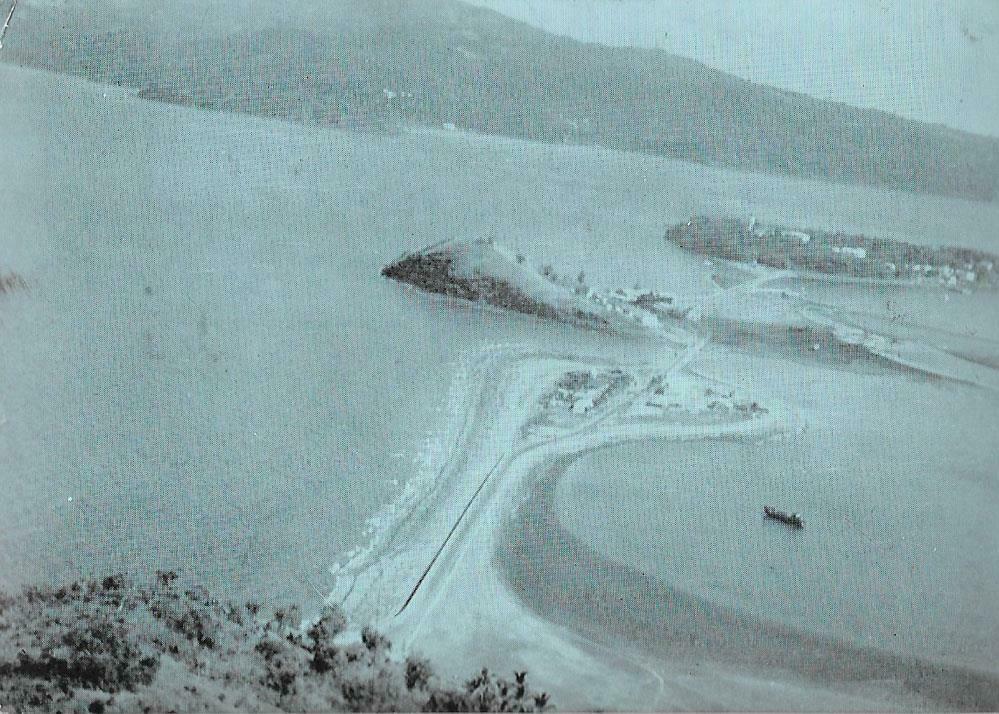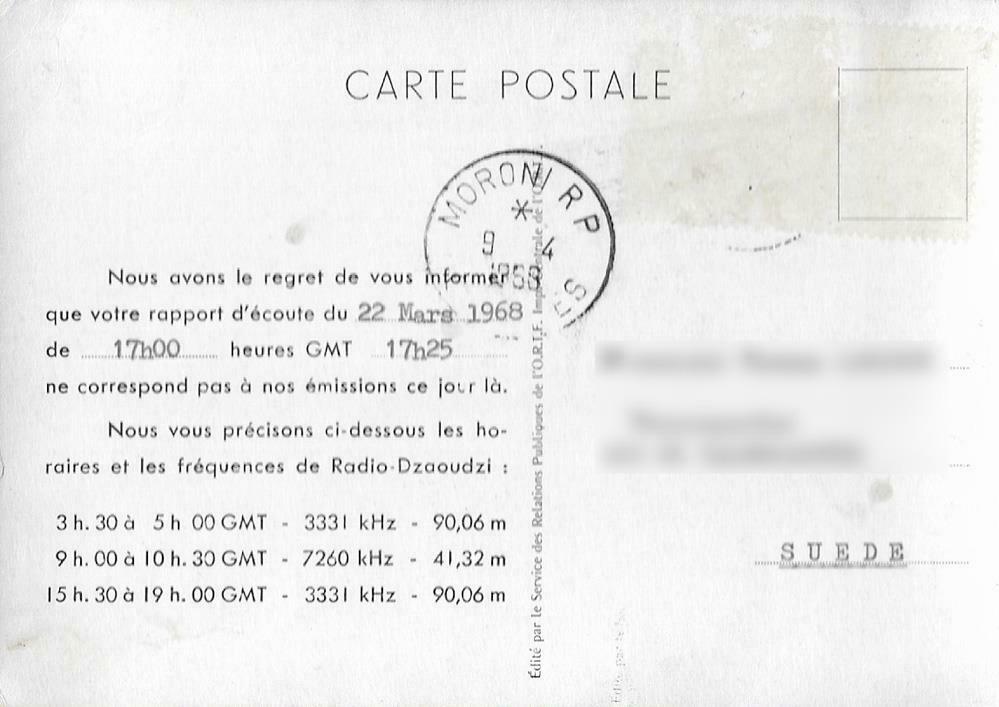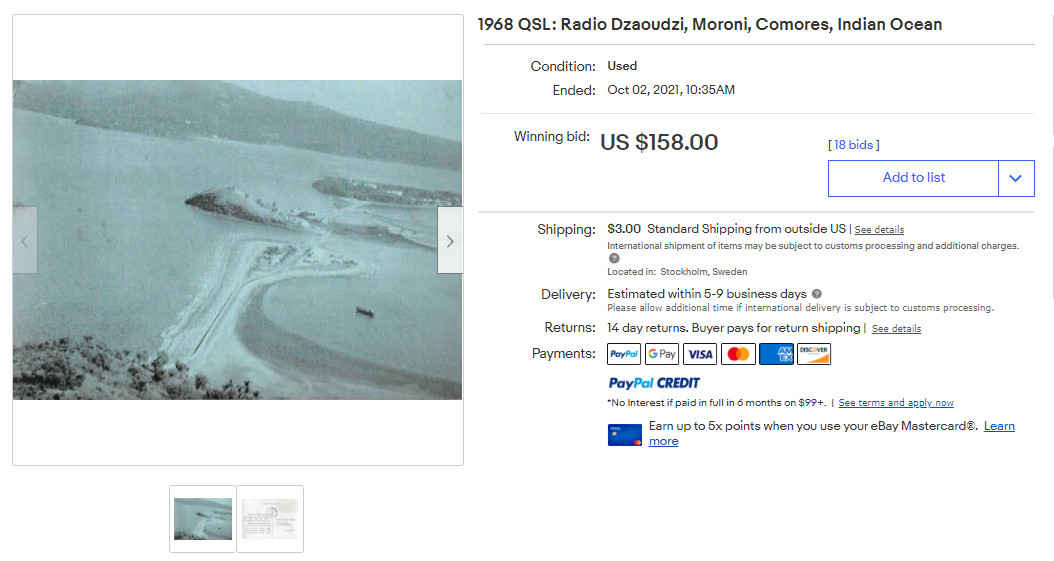Many thanks to SWLing Post contributor, Dan Robinson, who writes:
In recent years, a number of records have been set for QSL cards from former shortwave stations around the world. The latest example shows that there is still strong collector demand for one of the rarest stations on the air from Africa, Comoros Islands.
In this eBay auction, a classic photo QSL from the station at Moroni went for $158. That’s in the high end for QSL auctions — there have been higher, for example for QSLs from the former AFAN station at McMurdo, Antarctica, and for some other African and Asian cards.
This card shows the 90 meter band shortwave frequency for the station, 3,331 kHz which as veteran DX’ers who are still around recall could be heard with great difficulty from 0300 UTC when the station signed on for morning programming. The other frequency of 7,260 kHz was also heard, though the 90 meter frequency was the easiest for U.S. DX’ers.
– Dan Robinson
Wow! Thank you so much for sharing your insight, Dan. What a fascinating find!




I have my dads huge collection from the 1960’s. Where is the best place to market these cards? I know he would like them to be out there in the world in specific collections!
Looks as the buyer do not read French.
“Legaly” I think it’s not a QSL, it could be cataloged as Broadcasts schedule.
What strange is that the station printed bunch of them cards as, I guess they received many wrong reports from listeners so they had to sort things up.
Good questions regarding the “validity” of the card as an actual verification QSL. I had not noticed that and agree that actually increases the unique nature of the item.
Wow – I miss those days of QSL cards from around the world. Its a shame to see the stations dwindling over time. I have a box somewhere in the basement with a bunch – could I retire by selling them on eBay?!? 🙂
However, this is actually a NON-QSL, as the text on the back explicitly states that the reception report did NOT tally the station’s logs. That probably makes this card exceedingly rarer than a QSL in general (and perhaps also for this station), as this is the first instance I can recall of seeing such as card.
Given that the reply in French clearly indicates the reception report does not correspond to any of their transmissions, is this still considered a QSL card? All the same, pretty cool they took the time to notify the listener that their report was for another station.